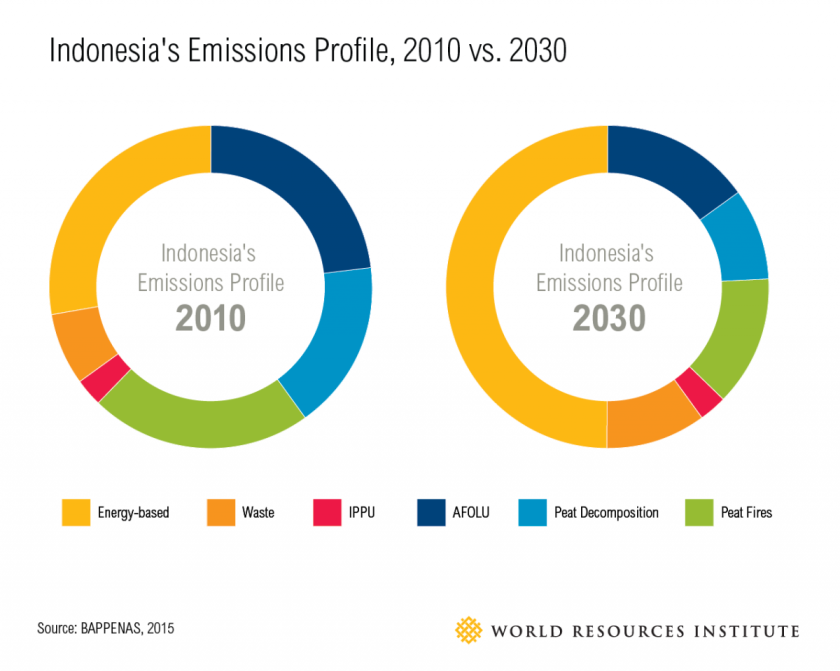
In order to celebrate the Earth Day every year on April 22nd, it is necessary for everyone around the world to take care of our earth’s environment with any kind of action, such as no littering anymore or holding social event of planting thousands of tree on each year. Even though those actions only give little impacts (positively), for all the people around the world to do so obviously eventually turn out as a big contribution to save our earth. Not only from the society, but the government in every country along with the international organizations also give their efforts on saving the earth from any kind of threat that could destroy the nature, for instances are the rise of pollution (e.g. air, water and sound pollution) or the climate change. One of the actions taken by the government around the world to solve those problems was by cooperating with other countries to sign in the Paris Agreement which was held on December 2015 and the second phase of the agreement on April 22nd, 2016. This agreement was organized by the United Nations through the UN Summit which attended by more than 140 countries around the world to solve the climate change issue which has becoming worst and brings negative impacts both for the nature and the world’s society. Even though it cannot solve all kind of environmentally-related problems, this agreement is hugely significant since it represents nearly every country in the world by saying that this is a big issue and they must do critical actions to decline the impact of the global warming and climate change. And one of those countries who involved is Indonesia.
After agreeing to involve and participate for solving the climate change issue through the Paris Agreement, the Indonesian government has considered that environmental security must be prioritized in one of the country’s national interests. And in order to achieve those interests, the government has been started to take out particular policies related to the issue in national/sub-national, regional and global scale.
As an archipelago country, Indonesia is considered as one of several countries in the world which is vulnerable for the climate change. It is caused by both of its geographic and demographic condition, where geographically Indonesia has wide coastal area, along with its vast marine and forestry ecosystems. Adding with its overcrowded population, it is possible that there will be an imbalance between its overcapacity population with limited natural resources availability in the future, which then making natural disasters to happen every year (e.g. the flood, forest fire and an earthquake) caused by high level of emission coming from the climate change. That is why it is necessary for Indonesia to involve on the Paris Agreement.
As for the further actions for the implementation of the Paris Agreement which then has been ratified on COP 21 by the UNFCCC in Paris on April 22nd last year, Indonesian government has taken out the country’s national interests and its policies related to the issue which must be prioritized from now on in order to achieve its emission reduction target and environmental degradation up to 2025. Those are also necessary in order to fulfil their efforts for applying several aspects or elements that comes from the agreement, where the elements are in terms of the mitigation, adaptation from loss and damage, funding/technology transfer/capacity building and transparency. Based on the statement coming from the Indonesian government through the country’s Ministry of Foreign Affairs (MOFA) official website, the national interests of the Republic of Indonesia related to the climate change issue in responding to the Paris Agreement are maintaining the country’s marine and forestry ecosystem preservation, giving support and efforts in terms of adaptation aspect which coming from the Paris Agreement related to the environmental situation in Indonesia that vulnerable with the climate change, developing the common but differentiated responsibilities (CBDR) and respective capabilities (RC) principles and also implementing Reducing Emission from Deforestation and Forest Degradation activities along with the sustainable forest management (REDD Plus) which considered as another incentive from the developed countries.
In order to achieve its national interests, the Indonesian government has taken out some policies in solving the issue which then supported by some programs which planned to be held in the future. In the national/sub-national scale, Indonesian government has taken out an emission reduction policy which means they will commit in reducing emission by 29% up to 2030 under the Business as Usual (BAU) and up to 41% with international support. This policy has been stated by the government of Indonesia in 2015 which then considered as part of the country’s NDC (Nationally Determined Contribution) by involving several sectors such as from the energy, agriculture, land-use, land-use change and forestry and also from waste sector. With the coordination of those sectors along with the involvement of non-state actors, the government also has planned to launch some programs related to the policy. The first program will be the Ownership and The Ministry, Local Government and Legislative Body Commitment Development Program. With this program, the local government and legislative bodies especially can pay more attention towards the regional economy, social and ecosystem rationality on each province and regency/city on every region in Indonesia, so they can guarantee that the emission reduction commitment also reflecting their commitment in developing the welfare of the society. Then there will be also enabling environment program, where this program will be divided into several parts such as strengthening the institutional bodies in order to manage the watershed (DAS), the strategic environmental assessment (KLHS), the national energy policy (KEN), the electricity procurement business plan (RUPTL), the General Planning for National Energy (RUEN), the regional energy plans (RUED) and the preparation of Indonesia’s National Strategy for Sustainable Development. The next one if capacity development program where it will be focusing more on strengthening the institution bodies and human resources capacity for instance is calculating the sectoral/regional emission level. And the last one is Emission of Greenhouse Gasses One Data Policy Program where all of the data and information related to the problem must be arranged, collected and communicated with some parties which are managed centrally and singularly.


Specifically, Indonesian government also has started to give priority in reducing the emission in agriculture and forestry sectors by conducting peat management mitigation efforts. Aside from that, the government also will try to extend the moratorium policy which covering not only the primary forests and peatlands but also secondary forests.
While on bilateral and regional scales, Indonesia also has conducted bilateral cooperation with several countries in energy sector (both from the state and non-state actors) such as with the United States, European countries and other ASEAN countries in emission reduction cause by the climate change. From the United States, the government of both countries has established executive (entrepreneurs) exchange program which sponsored by the USAID as part of their support in developing renewable energy in Indonesia as part of the solution in reducing the emission from climate change. Besides the US, the French government also showed its support on the policy by signing several business agreements between entrepreneurs from both countries in terms of business cooperation for improving renewable energy sector in Indonesia. There was also an agreement that had been signed and dealt by French government and 40 businessmen on their commitment to plant their investment at least US$2.6 billion or Rp34.5 trillion, where part of it goes for renewable energy sector. The agreement was made during state visit of French President Francois Hollande to Indonesia on Wednesday, March 29th 2017. As from the UK, its prime minister and Indonesian government had made a cooperation in conducting a research about renewable energy resources by providing financial aid around 14.5 million pound sterling or Rp250 billion for the research itself. The research would involve some of Indonesia’s famed universities and institutions (e.g. ITB, IPB, University of Indonesia and Padjajaran University) along with several famed colleges in England like the Oxford University. Then, another opportunity to support Indonesia’s renewable energy policy was coming from Swedish government. The government of both countries has made a deal to sign MoU in developing renewable energy business sector in Indonesia, mainly in terms of hydropower and wind energy resources. The implementation of both countries’ cooperation could be seen from the construction of biogas-fueled power (PLTBg) plants in 2015 which located in Palu, South Sulawesi. While on the regional scale, Indonesia has been showing its involvement on solving the climate change issue by participating and becomes a member of ASEAN Agreement on Transboundary Haze with the purpose is to solve the forest fire issue.
And on the global scale, the president of the Republic of Indonesia together with the president of United States, the French president, Indian prime minister and the leader from other 16 countries in the world has cooperated in launching Mission Innovation which considered as part of their global partnership platform which also has been supported by 19 countries in order to encourage the development of clean energy initiative.


Excellent blog right here! Also your web site lots up very fast! What web host are you the use of? Can I get your associate hyperlink to your host? I want my web site loaded up as quickly as yours lol
LikeLiked by 1 person
You really make it seem really easy together with your presentation but I find this matter to be really one thing which I think I’d by no means understand. It seems too complex and very vast for me. I’m taking a look ahead in your next submit, I’ll try to get the grasp of it!
LikeLike